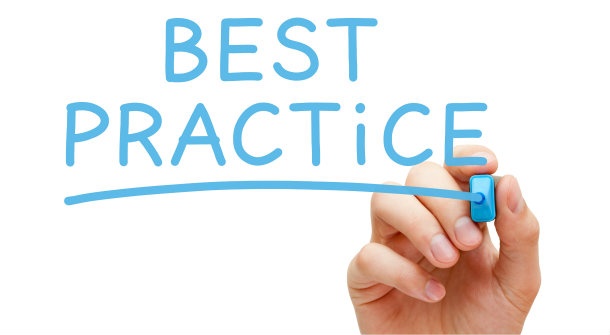asking questions
-
My Most Popular Sales Article of the Last Ten Years
- December 13, 2021
- Posted by: Dave Kurlan
- Category: Understanding the Sales Force

Suppose your salespeople hear one prospect say, “This has been a very interesting and productive conversation and we might have some interest in this.” And imagine another prospect at the same meeting says, “We’ll get back to you next month and let you know what kind of progress we’ve made.” And still a third might say, “In the meantime, please send us a proposal with references and a timeline.”
There are three important lessons that arise from this:
-
New Movie Has 3 Great Lessons for Salespeople and Sales Managers
- January 18, 2021
- Posted by: Dave Kurlan
- Category: Understanding the Sales Force

Among all the product shortages we have experienced in the past ten months, there has been no shortage of crappy movies. It’s almost like the movie studios decided to release all the movies filmed in the past several years that weren’t ready for prime time and hope that people would stream them at home during the pandemic because we had watched everything else.
One exception to the crappiness of 2020 movies is The Trial of the Chicago 7. This article is not a review of the movie but it was a terrific film and worth the time to watch it. As good as this movie is, it comes with a bonus because it also provides three exceptional lessons for salespeople and sales managers. Let’s take a look!
-
FDR and Sir Isaac Newton on Why Salespeople Fail
- August 25, 2020
- Posted by: Dave Kurlan
- Category: Understanding the Sales Force

Unlike the made up fears that prevent salespeople from asking tough questions, qualifying more thoroughly, or picking up the phone and making a cold call, the fear of burning alive in a hotel fire seemed like a pretty justifiable one.
-
Change in Approach Leads to 304% Increase in Sales Effectiveness
- September 9, 2019
- Posted by: Dave Kurlan
- Category: Understanding the Sales Force

You’re famished and someone suggests that you go on a 2-day fast!
You’re late, it’s a two-hour ride by car to your destination and someone suggests that you walk!
You’re exhausted and ready for a nap and someone suggests you should clean out your basement!
You’ve decided to eat better and lay-off carbs, and someone suggests ordering pizza!
These are all crazy opposites of what you were focused on and they cause you to ask, “whaaat?”
So now you’ll understand how I responded when, during a two-day training program, I was asked about messaging for a talk track.
-
Are Salespeople Still Using the Hard Sell?
- March 27, 2019
- Posted by: Dave Kurlan
- Category: Understanding the Sales Force

When you hear a phrase like the hard sell, do you instantly think of car salespeople? Insurance? Replacement windows? No offense intended to those of you in one of those three industries!
While someone’s reference to a hard sell may differ, the perception of the hard sell is fairly universal. After prospects state an objection, say they’re not interested, or tell the salesperson, “No,” prospects tend to raise their resistance. Most salespeople have been trained to handle these objections and put-offs and therein lies the problem. There are proper and effective ways to handle these, and there are improper and ineffective ways to handle these. When you use the wrong approach it will appear to the prospect as if you are using the hard sell and their resistance will go up even further.
Most salespeople think that the hard sell consists of arm-wrestling, hammering or pressuring their prospect. While all three of those approaches are variations of the hard sell, most salespeople overcompensate so much that they wouldn’t be caught dead using them. Instead, salespeople are guilty of the hard sell when they aren’t aware of it. All it takes to be perceived of using the hard sell is to attempt any of the following ten things in response to a prospect’s increased resistance:
-
Salespeople Make This Mistake – The Dumb Question I Was Asked in a Hotel Restaurant
- February 15, 2019
- Posted by: Dave Kurlan
- Category: Understanding the Sales Force

I pulled up to the entrance of the Doubletree Hotel, greeted Chris, and we walked into the hotel restaurant. As we approached the table, a well-meaning server asked, are you an Honors member? I said, “yes.”
A moment later she returned and said she couldn’t find me in the system. She asked me to spell my name, went back to her computer, and returned again, saying, “I can’t find your reservation in the system.”
I explained that I wasn’t a hotel guest and we were here for breakfast. “Oh, then you’ll have to pay for your breakfast!”
“OK,” I said. After all, I was expecting to pay for breakfast!
Can you imagine how much simpler it would have been if her first question was, “Are you staying with us?”
Salespeople make the exact same mistake. How do I know? I can prove this with several examples.
-
Improve Your Win Rate and Shorten Your Sales Cycle by Doing This
- April 11, 2018
- Posted by: Dave Kurlan
- Category: Understanding the Sales Force

In September I wrote this article on the difference between asking good, tough and great questions.
I included examples all three types of question in the article.
There is also a proper sequence: Good question. Tough Question. Great question.
You will get immediate feedback on how effective your questions are: Your prospects will say, “Good question” when you ask one. They will say, “Great question” when you ask one. And they will stop and struggle before answering one of your tough questions.
Many salespeople make the mistake of preparing questions in advance. Salespeople who do that might be able to stumble onto one good question. But great questions and tough questions must be spontaneous and in response to something your prospect already said when they answered prior questions.
I’ll share a role-play from a training program that wonderfully demonstrates what I’m talking about as well as the kind of listening skills required in order to ask good, tough and great questions.
-
3 Lessons that Apply to Every Sales Call No Matter What You Sell
- December 18, 2017
- Posted by: Dave Kurlan
- Category: Understanding the Sales Force

Several years ago, during one of the performances, it dawned on me that the orchestra’s role in the show correlated very nicely to an effective sales presentation. There were 3 fantastic lessons that I presented then and as I have done each year since, will present again here.
-
4 Reasons Why Salespeople Suck at Consultative Selling.
- September 26, 2017
- Posted by: Dave Kurlan
- Category: Understanding the Sales Force

Yesterday, a sales manager I was coaching asked me to explain the difference between a great question and a tough question. I gave him the one-minute version but this article has the expanded version of that answer.
-
Dissecting the #1 Sales Best Practice
- August 26, 2016
- Posted by: Dave Kurlan
- Category: Understanding the Sales Force

One company is attempting to create a compilation of best sales practices by sending out a weekly survey to sales leaders and asking them to choose from multiple choice questions what they most often do and teach. The topic changes each week. This is silly because (1) it just isn’t that simple, (2) it’s different for each selling role, each vertical, the decision makers they call on, their price points, the length of their sales cycle, and their respective competition, just to name a few. In addition, when you ask multiple choice questions like this, the answers will be so varied that there won’t be even a few, never mind a single best practice. Here is an example of what they asked this week:
- 1
- 2

